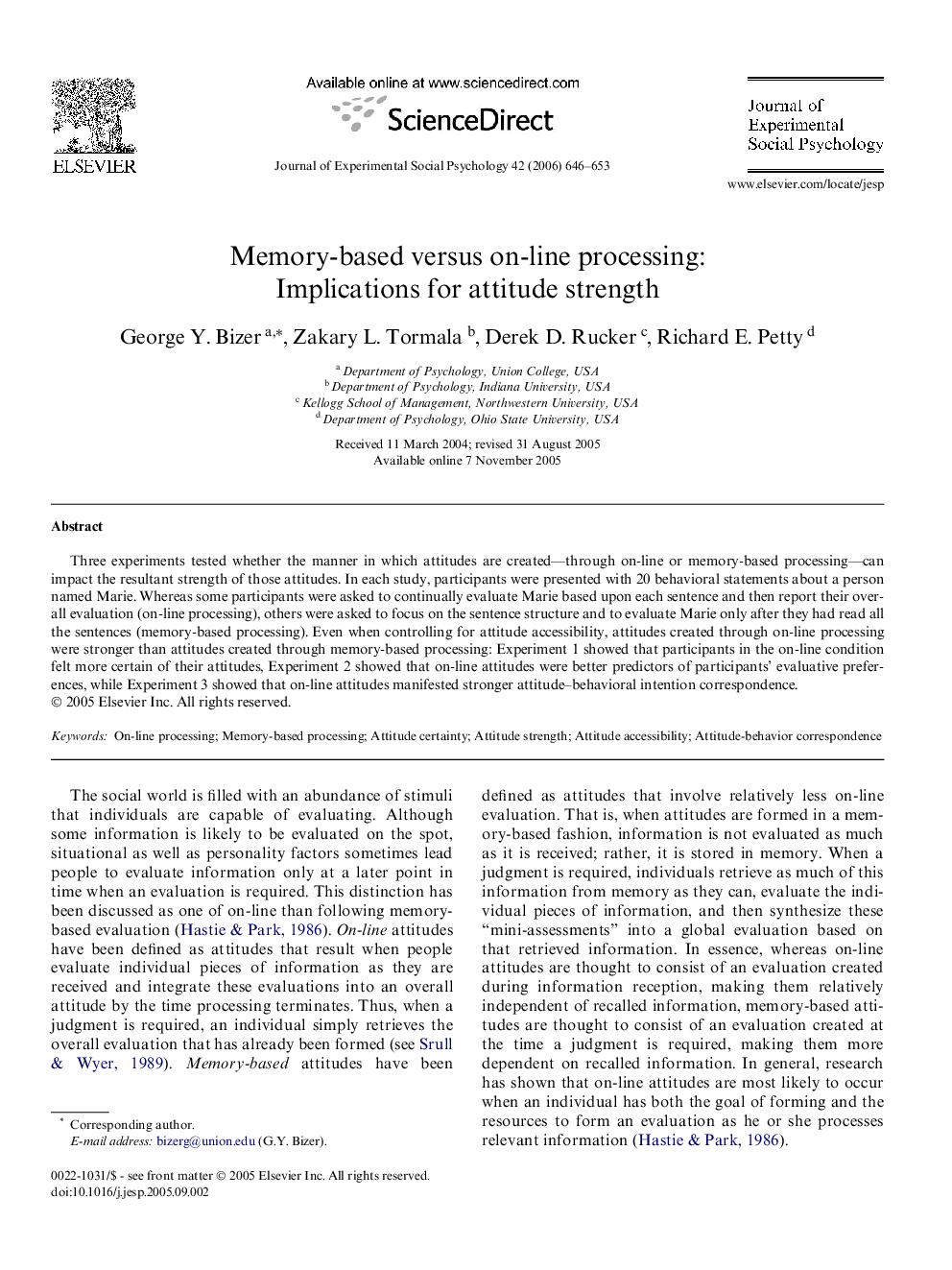| Article ID | Journal | Published Year | Pages | File Type |
|---|---|---|---|---|
| 948694 | Journal of Experimental Social Psychology | 2006 | 8 Pages |
Three experiments tested whether the manner in which attitudes are created—through on-line or memory-based processing—can impact the resultant strength of those attitudes. In each study, participants were presented with 20 behavioral statements about a person named Marie. Whereas some participants were asked to continually evaluate Marie based upon each sentence and then report their overall evaluation (on-line processing), others were asked to focus on the sentence structure and to evaluate Marie only after they had read all the sentences (memory-based processing). Even when controlling for attitude accessibility, attitudes created through on-line processing were stronger than attitudes created through memory-based processing: Experiment 1 showed that participants in the on-line condition felt more certain of their attitudes, Experiment 2 showed that on-line attitudes were better predictors of participants’ evaluative preferences, while Experiment 3 showed that on-line attitudes manifested stronger attitude–behavioral intention correspondence.
